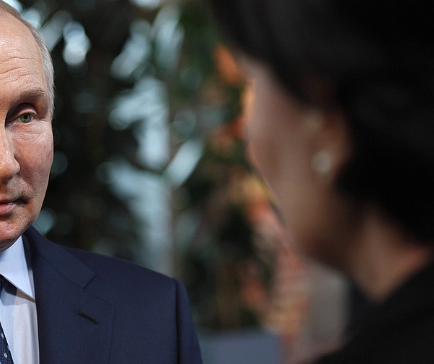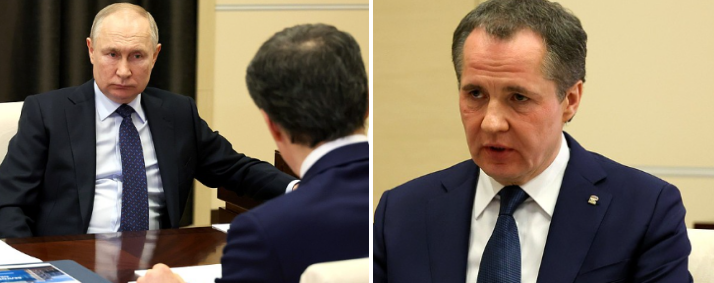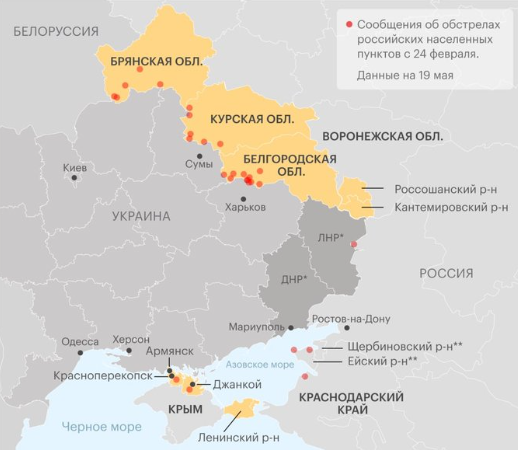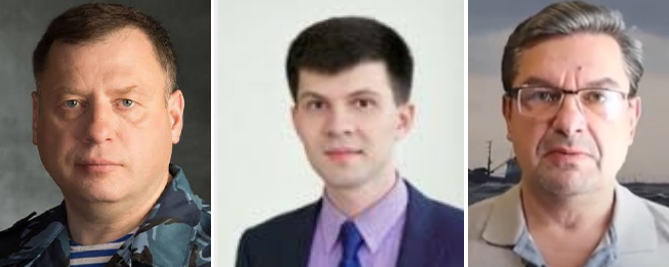

By John Helmer, Moscow
@bears_with
Existentially speaking — which means whether to live and let live, to do or die — how far from a mortal enemy is far enough? In between the one and the other outcome, is there anything but a no man’s land?
Carthago delenda est – “Carthage must be destroyed” – was a Roman strategic aim 2,200 years ago. It was regularly repeated in his public speeches by Marcus Porcius Cato in his advocacy of putting an end to the Punic Wars by destroying the Carthaginian adversary entirely, not just militarily, so that it could never rise again to challenge Roman power. The opposition slogan was Carthago servanda est – “Carthage must be saved”. Its author, Publius Cornelius Scipio Nasica Corculum, meant don’t rule by force if it can be avoided; instead conserve lives, resources, power.
Cato was a politician; Corculum was a soldier. The political strategy of doing what you can because you can, and as a warning to everyone else, won out; Cato is remembered even now; Corculum is forgotten. This is not because imperial history repeats itself, but because the history is always written by people aiming to stay on the winning side: they don’t know any better until the empire has been lost and their retainers with it.
In the evolution of the Russian war aims, former president Dmitry Medvedev, now deputy head of the Security Council, stood up for the Cato line last week. “Ukraine will disappear”, he declared. “Now it’s time to say how Ukraine will disappear, and also what will then be the risk of a resumption of the war in Europe and in the rest of the world.” Medvedev also left open the Corculum option after the Cato option in his last line. “We may be temporarily satisfied with the second option, but we need a third one.”
Because Russia is the only functioning democracy on the two sides of this war, where military tactics and war aims are openly argued in parliament and the media, the debate between the Cato delenda war aim, and the Corculum servanda war aim is an active one. Sworn to destroy President Vladimir Putin, the Russian army and economy, the US, European and western allies misinterpret this debate to be vacillation and vulnerability. Dialectically speaking, this encourages the Cato line faction in Moscow at the expense of the Corculum line faction. In this way the US and NATO axis provokes its own defeat.
This process has taken the war well beyond the 300-kilometre range of some of the US, French or British weapons which have been deployed and fired to date. The debate over the 300-km westward defence line was winding up in Russia, not beginning, when winter started last year.
Medvedev made this official last week, following the intensification of artillery, rocket, and drone attacks on Russian cities, including Moscow. This week the governor of Belgorod, Vyacheslav Gladkov, went further. Then yesterday President Putin (lead image, left) tried to pull Gladkov and Medvedev back in line — that’s the Corculum line, not the Cato line.
“We live in a state of de facto war. Whether we like it or not, it’s happening,” Gladkov said on the Rossiya 24 television channel. Asked what can be done to increase public security in the Russian border regions, he said one option is “to attach Kharkov to Belgorod Region. This is the best way to solve the issue of the shelling of Belgorod Region.”
That was a public, political challenge to the Kremlin. It was polite compared to those who use other names when they mean to criticize Putin’s conduct of the war.
Governor Gladkov is a southerner by birth, education, and career. Born in the Penza region, he has worked in high administrative posts in Penza, Crimea, Stavropol, and for almost three years now in Belgorod.

On January 24, 2023, the President was briefed by Governor Gladkov at Novo-Ogaryovo. Putin tried to be reassuring. “Anything is possible, but practical combat operations show that Russia's air defense is one of the best in the world. As I have said, the missiles that the US produces for the Patriot system, our country makes three times as many, even more than three times as many. And as for air defense missiles in general, for various purposes, Russian production is comparable to total world production. And apart from everything else, of course, our systems themselves are modern and reliable. Of course, anything can happen, but on the whole, the system is working properly.” Source: http://en.kremlin.ru/
The first Kremlin reply to Gladkov was Dmitry Peskov’s, the spokesman. He was opposed, he intimated, to annexation of more regions along the front line by repeating the restrictive limits of the war. “This already belongs to the category of issues related to the conduct of Special Military Operation. Therefore, I cannot comment on this in any way.” Peskov said his piece on Monday morning.
On Tuesday afternoon, after Ukrainian drones had landed in Moscow, Putin said more; he also said the same thing. “We all had to respond by launching the special military operation. We are striking at the territory of Ukraine, but with long-range precision weapons, at military infrastructure facilities only, either at ammunition or fuel and lubricants warehouses used for combat operations. We have talked about the possibility of striking at decision-making centres. Of course, the headquarters of Ukrainian military intelligence is one of them, and a strike at this target was carried out two or three days ago.”
This is the Russian version of the Corculum line. Pinpricks as the drone attacks are in military terms, in Belgorod or Moscow or other regions, they are triggering a great many public expressions of the Cato line – and as Medvedev, Captain Obvious when he was president, makes obvious, this is now a significant political force.
Was the Belgorod governor challenging the Kremlin to lift the restrictions Putin insists are “military infrastructure facilities only [and] decision-making centres”? Is Gladkov appealing to the Security Council and the General Staff to shrink the “no man’s land” as Medvedev called it last week? Will demilitarisation, as this was first defined in February 2022, to be extended westward by annexation of all territories from which cross-border terrorism, artillery shelling, drones, and missiles can be launched in the foreseeable future?
Here is a sample of the public answers from academic and military experts in Moscow as reported by mainstream publishers, editors and journalists:
- The Deputy Chairman of the State Duma Committee on Defense Yury Shvytkin has agreed with the opinion of the Governor of the Belgorod region Vyacheslav Gladkov, who has advocated the annexation of Kharkov and Kharkov region to Russia in order to stop the shelling of the region by the Armed Forces of Ukraine (AFU). In the comments to the agency News.ru, the parliamentarian, however, noted that this is not the only way to resolve the issue and it is necessary to secure the border territories from the AFU as much as possible. “One military operation cannot solve the problem, there must be a set of solutions. One of them, I agree with Gladkov, is the capture of Kharkov. In parallel with this, other tasks need to be solved. We will take Kharkov not today and not tomorrow, and so security needs to be provided now. We need to take emergency measures in this matter,” Shvytkin said. The deputy added that it is now very important to move the AFU away from the border of the Russian Federation, securing the areas as much as possible. Shvytkin also called for the creation of an operational headquarters under the unified command of the border territories, as well as for training specialists in anti-sabotage activities. According to him, the decision on the operational staff was supported by the head of the State Duma Committee on Defense Andrei Kartapolov.”
MAP OF BRYANSK, KURSK AND BELGOROD REGIONS ON UKRAINE BORDER

- The annexation of the Kharkov region to Russia will help stop the shelling by the Ukrainian Armed Forces, as the Russian border will be significantly moved away. This was stated to the Regional Information Agency of the Moscow Region (RIAMO) by Moscow State University political scientist Artem Kosorukov, commenting on the related initiative of the Governor of the Belgorod Region Vyacheslav Gladkov. “The shelling of the Belgorod, Bryansk, and Kursk regions is a form of hybrid war; that is, maintaining tension, terrorising civilians, hitting civilian targets. To stop them, it is really necessary to move the border, because to suppress all these numerous points and constantly catch sabotage reconnaissance groups is a very difficult and painstaking work,” he explained. According to his estimates, if you shift the Russian border from the Belgorod region by about a hundred kilometers or more, Kharkov will certainly fall into this zone. However, there is no need to wait for Moscow to announce its plans, because if the Russian leadership has such thoughts, then this is a military secret, the expert noted. Kosorukov is sure that the Odessa and Kharkov regions should have been part of Novorossiya, based on the conditions of 2014. According to him, such plans may have been temporarily abandoned. Another option is to move the borders, but to make the territory a buffer zone until a final decision is made on the annexation of the region to Russia.”
- The continuation of shelling and attacks on Russian regions forces the Russian government to think about moving the border of contact with Ukraine. So, in an interview with Regnum Information Agency, political scientist Yury Svetov commented on the statement of the governor of the Belgorod region Vyacheslav Gladkov about the need to take over the Kharkov region in order to solve the problem of shelling in the region. Political scientist Svetov conceded that a referendum might be held in Kharkov on joining Russia. “There is logic in this. The continuation of shelling by the Ukrainian Armed Forces forces us to move the contact line further and further. Obviously, until they stop firing, we will move. Kharkov has always been a predominantly Russian city. Russia still has to liberate territories and hold referendums. Without the liberation of Kharkov, Nikolaev, and Odessa, Ukraine’s aggression cannot be stopped,” Svetov believes. “Of course, the West will not like it if the Kharkov region becomes part of Russia. But the further we go, the more we begin to assess the situation for ourselves, without regard to someone else’s opinion. We need to think about ourselves and about protecting our population, and not about the reaction of the West,” the political scientist emphasizes.

Left to right: Yury Shvytkin, former airborne Guards officer, currently deputy chairman of the Duma Defense Committee; Artem Kosorukov, senior lecturer in political analysis, Lomonosov Moscow State University; Mikhail Onufrienko, originally from Kharkov and now in Russia, he produces regular podcast and printed analyses of the war
- The statement of the governor Vyacheslav Gladkov is dictated by concern for the safety of local residents. But this problem covers all the border regions. To solve the problem, a complete demilitarisation of Ukraine is needed, military analyst Mikhail Onufrienko told the newspaper Vzglyad. Earlier, Gladkov had said that only the annexation of the Kharkov region will be able to protect the region from shelling. “The statements of Belgorod Governor Gladkov are a statement of fact, which was noticed only when the head of the region said so. This was discussed in the expert community last year, when the decision was made to withdraw our troops from the territory of the Kharkov region,” military analyst Mikhail Onufrienko said. “Even then it was quite obvious that such proximity of the Belgorod region and the territories controlled by the Armed Forces of Ukraine threatens that they will shell our region. Gladkov, of course, is concerned about the security of the subject entrusted to him, so he talks about the need to annex the Kharkov region,” he said. “But we understand that the governor of the Kursk region is also concerned about the proximity of the border in the Sumy region. Likewise, the head of the Bryansk region is concerned about the territories of the adjacent Chernigov region. In fact, this is what President Putin spoke about at the very beginning of his speech: the need for denazification and demilitarization of the entire territory controlled by the Ukrainian authorities. Until this happens, the shelling of our regions will not stop,” the source believes.
- The governor of the Belgorod region Vyacheslav Gladkov has announced how to solve the problem of the shelling of territories of the region. He has proposed to annex Kharkov and Kharkov region. Military expert Vladislav Shurygin believes that this will only push the problems to new territories. According to him, the task is a different one – this is to destroy the military potential of Ukraine. He added that Gladkov’s idea is correct, but it’s worth considering who will defend the new territory. He believes that this step will push the problem away and the new authorities will have to deal with it.
- A member of the Presidium of the All-Russia organization “Officers of Russia” Roman Shkurlatov commented on the statements of the Governor of the Belgorod region Vyacheslav Gladkov about the inclusion of Kharkov and the Kharkov region in the region due to shelling by the Armed Forces of Ukraine. According to the lieutenant colonel of the reserve, the head of the Belgorod region correctly expressed himself in this situation. He [the governor of the Belgorod Region] is absolutely right that Kharkov and the Kharkov region itself should be annexed to the Belgorod region in order to protect the region and the border territories from shelling by the Ukrainian army. This has been repeatedly said by both the leadership of our country and the command of the Armed Forces of the Russian Federation. As the West continues to supply long–range weapons systems to the Nazi regime of Kiev, it is just as necessary to move the border of the so-called Ukraine away from the borders of Russia, thereby creating a buffer zone and preventing the use of long-range systems, the military expert commented for Military Review.
At the same time, Shkurlatov noted, by moving the border to a distance that these Western–style missile systems cannot overcome, Russia is creating a safe zone for its territory, including for the territories of new Russian regions – the Zaporozhye and Kherson regions, as well as the Lugansk and Donetsk people’s republics. These territories are native Russian and legal in accordance with the Constitution of the Russian Federation. We all understand perfectly well that these borders [of Ukraine] will end up somewhere in the region of Poland. So you, Ukrainians, unfortunately, deprive yourselves of statehood in the future. The blame for all this lies with the current leadership of the country, which itself increases the escalation of the conflict, regularly firing rockets at Russian cities and villages, with its Western partners acting as accomplices in these crimes.”
- “There are several independent elements here. Firstly, the Stavka would not want to take territory that is expensive to hold; capturing cities can be a nightmare. They are not even moving toward Slavyansk and Kramatorsk. I believe taking cities is a bad idea and they are not going to do it. Instead they are going to defeat the Ukrainians through decapitation of command-and-control, attrition of supplies and logistics, and open battlefield destruction. Secondly, the governors have no say in anything the Kremlin and Stavka now decide. [Wagner head Yevgeny] Prigozhin has also lamented the return of territories but in time this is going to be a non-issue.
Third, the cross-border raids help Kremlin. If they were losing public support, these raids help them shore it up. Fourth, once the Ukrainian army is defeated, the eight regions of Novorossiya will be inside Russia [Odessa, Nikolaev, Dniepropetrovsk, Kherson, Zaporozhye, Lugansk, Donetsk, Kharkov]. This is a war that has not seen a single ceasefire and there will be none. This ends with the end-game. For the Americans a very substantial loss of face for Putin with a large number of casualties and some claw-back of territory taken by Moscow is victory. For the Russians, there are no half-measures. They have to seal it and they have to destroy or defeat the Ukrainian army on the battlefield. There will be no bargaining with anyone. Putin will not make the mistakes of Gorbachev to give back what has been won on battlefield. They will come in and take the cities after the Ukrainian forces capitulate” — Moscow military analyst requesting anonymity.











Leave a Reply